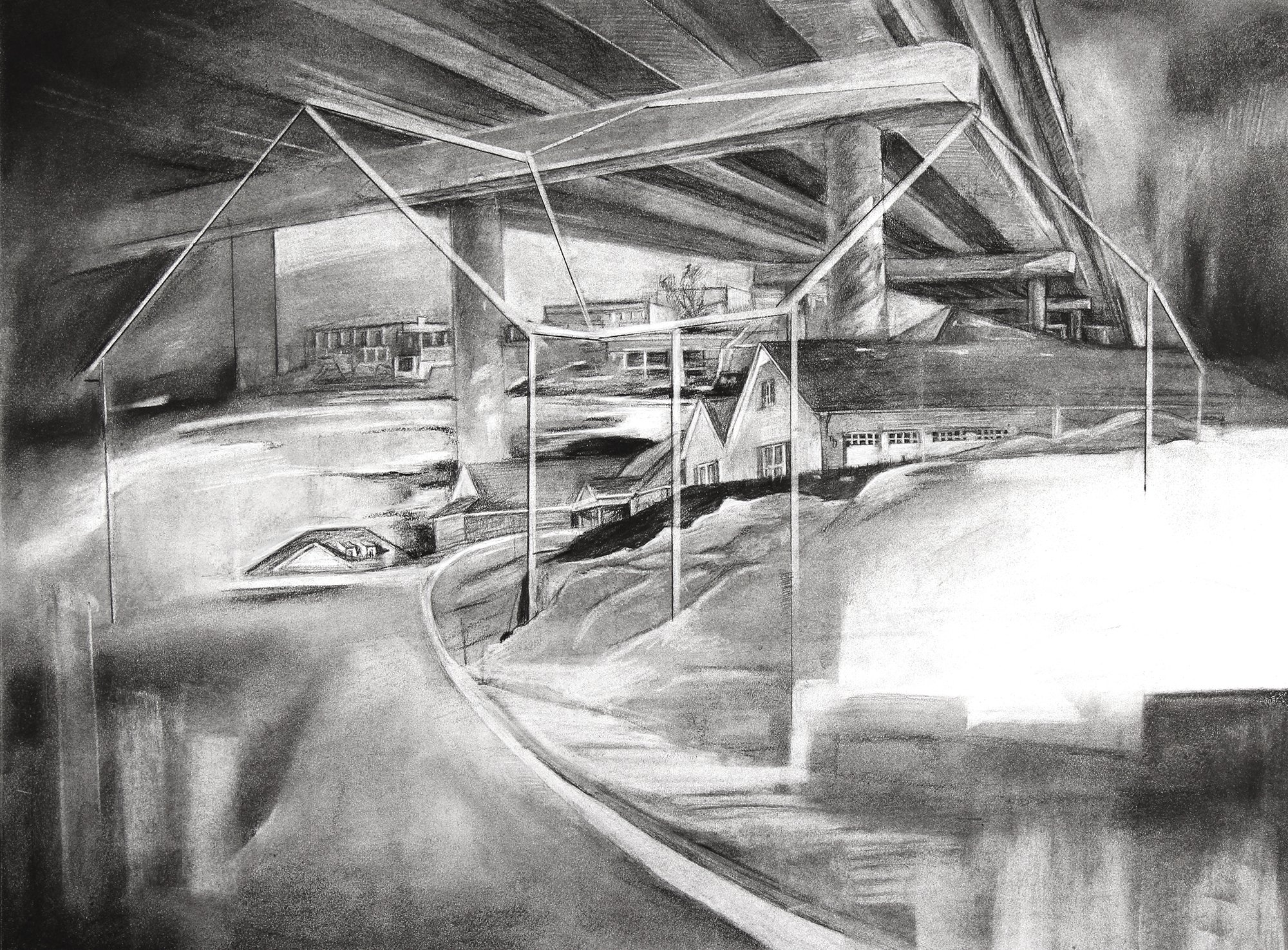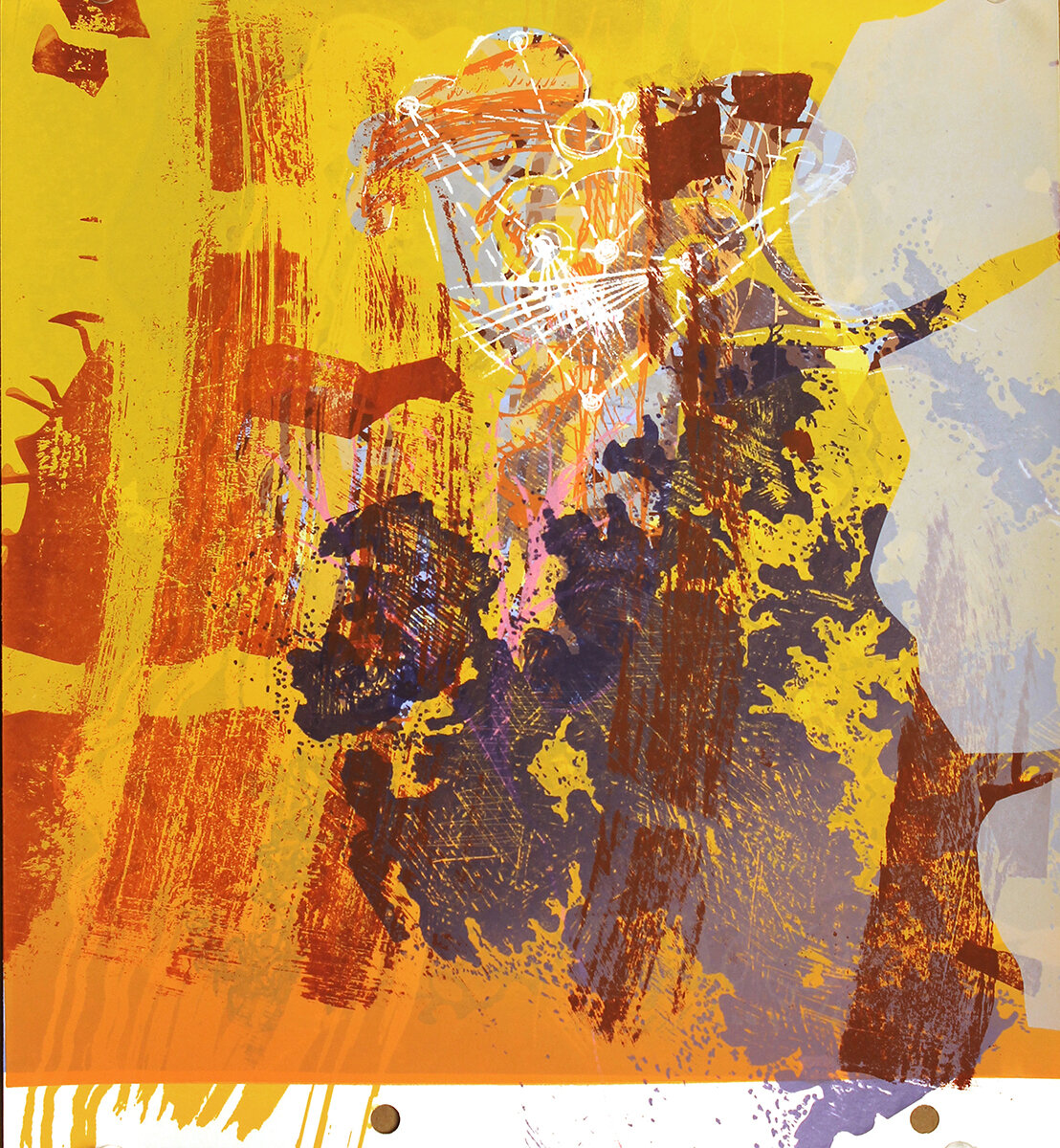The Other Side 3, detail, in collaboration with Lijun Chao 2021 Screen print 5"x15"x1.5"
The Other Side 3, detail, in collaboration with Lijun Chao 2021 Screen print 5"x15"x1.5"
The Other Side 3, detail, in collaboration with Lijun Chao 2021 Screen print 5"x15"x1.5"
The Other Side 3, detail, in collaboration with Lijun Chao 2021 Screen print 5"x15"x1.5"
The Other Side 3, detail, in collaboration with Lijun Chao 2021 Screen print 5"x15"x1.5"
The Other Side, installation view, in collaboration with Lijun Chao 2021 Screen print with lithography 5"x192"x1.5"
The Other Side 2, installation view, in collaboration with Lijun Chao 2021 Screen print and lithograph 5"x135"x1.5"
Back and Forth, installation view, in collaboration with Lijun Chao 2021-2 Charcoal on Paper
Back and Forth 13, in collaboration with Lijun Chao 2022 Charcoal on Paper 18"x24"
Back and Forth 14, in collaboration with Lijun Chao 2022 Charcoal on Paper 18"x24"
Back and Forth 15, in collaboration with Lijun Chao 2022 Charcoal on Paper 18"x24"
Translation 1: in collaboration with Lijun Chao, Screenprint, 11”x9”, 2019
Translation 2: in collaboration with Lijun Chao, Screenprint, 11”x9”, 2019
Translation 3: in collaboration with Lijun Chao, Screenprint, 22”x15”, 2019
Translation 4: in collaboration with Lijun Chao, Screenprint, 11”x9”, 2019
Collaboration 4: in collaboration with Lijun Chao, Screenprint, 11”x10”, 2016
Collaboration 5: in collaboration with Lijun Chao, Screenprint, 11”x10”, 2016
Collaboration 6: in collaboration with Lijun Chao, Screenprint, 11”x10”, 2016
Collaboration 7: in collaboration with Lijun Chao, Screenprint, 11”x10”, 2016
Collaboration 8: in collaboration with Lijun Chao, Screenprint, 11”x10”, 2016
This work was made through a fully collaborative practice by Lijun Chao and Andy Holliday. We use screenprinting to rapidly respond and develop visual statements through states. The methodology varies from a series of prints created in cumulative states to a series of visual translations responding to verbal prompts.
The process highlights the roles of theory of mind and empathy in our creative relationship. Each of us asks the other to execute specific images that relate to our social dynamic, challenges we are facing as individuals, and our subjective experiences. As we each make individual images or contributions to larger works, we need to go beyond the role of translator to exercise our ability to visualize the subjective experiences of the other. As we do so, the image is inevitably distinct from the original idea. As we ask one another to visually describe the pressures of motherhood, cultural discomfort, or the pressures of making impossible choices, we only have individual experiences to draw upon. The resulting work highlights dissonance in our communication with one another, but it also exercises those skills that are useful on overcoming it.
At times we show the synthesis and emergent qualities of two individuals negotiating every detail of a creative process. We are driven by a conversational format through which we attempt to convey our respective cultures and experiences. An active process to our exchange is critical, as much of what we have to share is embodied in the process: balance, hierarchy, dominance, and philosophies concerning indecision are some of the subjects addressed. The serial format of the prints reveals a changing dynamic as we learn to yield control, embrace vulnerability, and constantly shift between the perspectives of audience and creator.



















